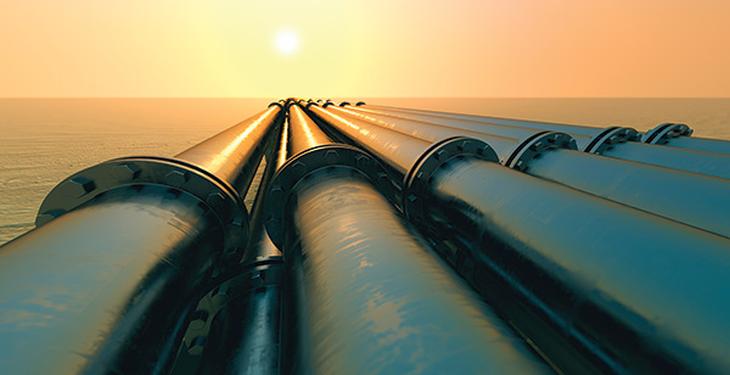In partnership with Global Data, Globuc – the organizers of the Black Sea Oil and Gas Conference (October 23-24, Bucharest) – have prepared an overview of infrastructure projects in the Black Sea countries – Romania, Ukraine, Georgia, Turkey, and Bulgaria.
Among the planned gas infrastructure projects in the Black Sea countries, 2019-2022 (Approval / Construction), Globuc mentions Transgaz’ 550 kilometers long Giurgiu-Nădlac gas pipeline, in construction, with an estimated CAPEX of 744 million dollars. Another two projects in Romania make the list. Midia Gas pipeline is in the approval stage. Black Sea Oil & Gas plans to start working in 2021 for the 126 km long pipeline (CAPEX: 342 million dollars). Once again, Transgaz’ 308 kilometers long Tuzla-Podișor pipeline is under approval, scheduled to be build starting from 2020, in a budget of 282 million dollars.
According to Globuc, among the Black Sea countries, Turkey is leading in total CAPEX of planned gas infrastructure projects in 2019-2000, all due to investment in Turkstream. Turkey-Bulgaria section of Turkstream is on the approval stage. The lowest bid was offered by Saudi Arabia’s Arkad Engineering, in partnership with an Italy-based JV between Arkad and ABB, bid 1.1 billion euros (US$1.24 billion) to build the 474-km stretch of pipeline by the end of 2020. The two other bids in the tender came from Hungary’s MOL and from a consortium comprising Italy’s Bonatti, Germany’s Max Streicher and a Luxembourg-based unit of Russia’s TMK. . Apart from that, the onshore line of Turkstream from Kirklareli to Edirne is being constructed.
In Romania, most of the planned gas infrastructure projects are focused on the Black Sea gas. Midia Gas project operated by the Black Sea Oil & Gas was approved by the government, with infrastructure works expected to finish by the Q1 2021 (Offshore Energy Today). Tuzla-Podisor pipeline operated by Transgaz is under approval stage. The major objective of this investment is to build a telescopic pipeline for natural gas transmission between Tuzla and Podisor, to measure 308.3 in length and 1200 and 1000 DN respectively, which will link the natural gas resources available on the Black Sea shore with the Bulgaria-Romania-Hungary-Austria corridor, ensuring thus the possibility of transmitting the natural gas to Bulgaria and Hungary through the existing interconnections Giurgiu-Ruse (with Bulgaria) and Nadlac-Szeged (with Hungary).
In Bulgaria, interconnection with Turkey is under construction (Bulgartransgaz). The project, as part of the priority Southern Gas Corridor is crucial in terms of security and diversification of the sources and routes of natural gas supply to/through Bulgaria and the region. Apart from that, there are a number of projects aimed at developing national gas transmission network on the stage of approval (Bulgartransgaz).
Among the announced oil & gas infrastructure projects in the Black Sea countries (Feasibility / FEED stage), White Stream (Option Route 2) with expected start date in 2022 is leading in terms of total CAPEX with US $2,500.00 mil. The White Stream natural gas pipeline is new cross-Black Sea infrastructure. It will transport Turkmen gas via the second string of the Trans-Caspian Pipeline (TCP) directly to Romania and the other EU Member States (White-Stream).
In Romania, there are a number of promising infrastructure projects on the horizon. AGRI, the first LNG Project to be developed in the Black Sea, aiming the transport of natural gas from Caspian region to Europe, with a start date set for 2026 for Romania – Hungary section. Oil pipeline from Pitești to Pancevo is set to start in 2020 by Conpet. Romania–Serbia Gas Interconnection Line by Transgaz is set to start in 2023.
In Bulgaria, Bulgartransgaz is aiming to start two gas pipeline infrastructure projects in 2022: Varna-Oryahovo and Sofia-Dimitrovgrad (Serbia).
